By Olivia Kemp, Sustainable Fisheries Programme Manager, Madagascar
Earlier this year I travelled to the Centre of the Universe. Or the island of Bali, Indonesia, as it is also known. The Balinese, who have a deeply rich culture, believe that a sacred volcano in the centre of the island is home to the highest of the Gods, and is in fact the true centre of the universe.
I had been invited to Bali, sometimes also called the Island of the Gods, to represent Blue Ventures at the Marine Stewardship Council’s (MSC) Developing World conference and training. An event for fisheries in developing countries and the people who work with them, to further explore the concept of seafood eco-labels. Developing-country fisheries produce two-thirds of the world’s fish production and account for half of the world trade in seafood.
Indonesia is a collection of islands nestled in the coral triangle, the area of our oceans with the highest biodiversity of marine species on all of earth. Prime positioning for us marine conservationists. It certainly felt like an appropriate place to discuss marine conservation and sustainable fisheries.
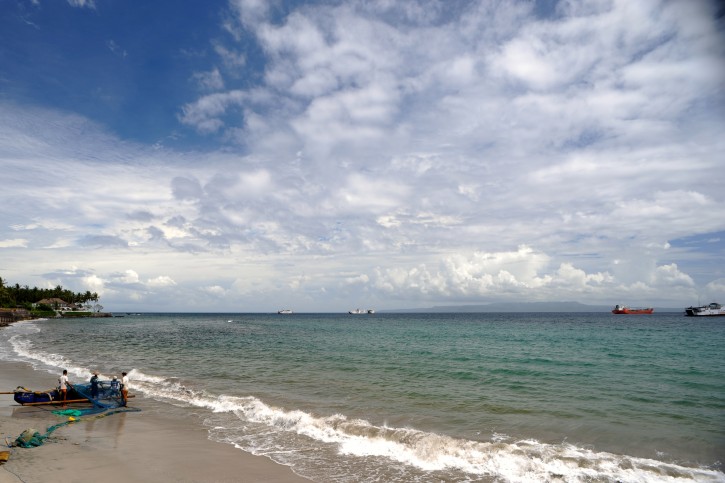
What a better setting than the island of gods?
I flew into Bali from Australia, where I had been home visiting family. Flying west over the Red Center, one of the driest and most weathered places on earth, to land in the lush green of Bali with her monsoonal climate is a powerful contrast, but one I have always reveled in. Once in Indonesia, I felt closer to Madagascar than one might have expected, with various cultural nuances reflective of the migration of people from these waters all the way to Madagascar thousands of years ago.
I was not alone in representing Madagascar at the conference, I was accompanied by one of our key counter-parts here in Toliara, Madagascar, Monsieur Gilbert Francois, from the Direction Régionale de la Pêche et des Resources Halieutiques, or the Ministry of Fisheries and Marine Resources for Madagascar. As well as increasing our understanding on the MSC process, we were fortunate to meet people from all over the world and all types of fisheries, from the India Asthamudi clam fishery, to the Indonesia and Maldives Tuna fisheries, to the Ecuador Mahi Mahi fishery, and more. The Madagascar octopus fishery was of course a point of fascination for many, something I am starting to get used to! At the conference film night, our Blue Ventures octopus film ‘Replicating Success: Sustainable Fisheries Management’ was shown, generating many questions and enthusiastic support of the work that has been achieved over the past decade.
Many of our international environmental NGO partners were also present, including; Conservation International, the Wildlife Conservation Society, The Nature Conservancy, IUCN, Rare and a large representation from WWF, from the USA, Japan, Indonesia, Latin America, West Africa, New Zealand and India. The MSC was originally born from the WWF, demonstrating the environmental roots of this market driven approach to sustainability.
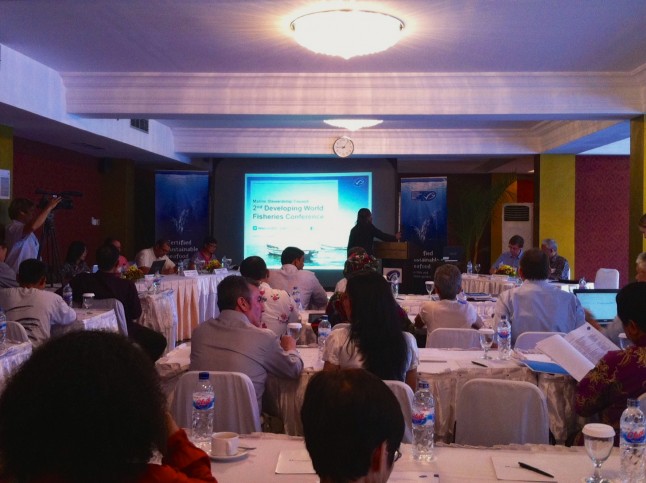
Many of our partners also attended this important meeting
What is the MSC?
The Marine Stewardship Council (MSC) is the world’s largest eco- label for wild-caught seafood. Have a look for the blue label (see below) next time you go shopping for seafood at some popular retailers (Sainsbury, Tesco, Marks and Spencer and Wal-Mart for example), or on the menus of some well-known restaurants. The eco-label certifies the ecological performance of a fishery against set standards, promoting a market to sustain certified products. The MSC, an international not-for-profit organisation set up in 1997, works to reduce levels of overfishing worldwide by working with fishers, public institutions and local NGOs, such as Blue Ventures, to promote sustainable fishing practices. They do this by measuring a fishery’s performance against criteria that fall into three areas; the stock health of the particular species; the impact the fishery has on the natural ecosystem, and the current management of the fishery. For more, check out these 21 facts about the MSC.
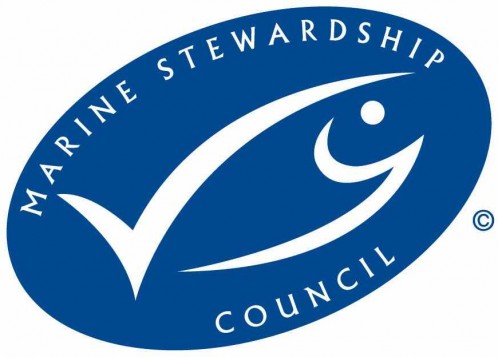
Eco-labeled Octopus
For the past ten years, Blue Ventures has been working with the communities of southwest Madagascar who rely on a vitally important octopus fishery. We are working with these local fishing communities to sustainably manage the fishery, by building strong, locally- driven management systems. We use an integrated approach, rapidly gaining international adoption, known as population, health, environment (PHE). The sustainable management of the Madagascar octopus fishery is critical to both the well-being of the traditional fishers themselves, and the broader marine conservation of the region. We believe MSC certification could benefit the fishery, by ensuring the continued implementation of sustainability management, using tools such as a harvest strategies and temporary fishing site closures.
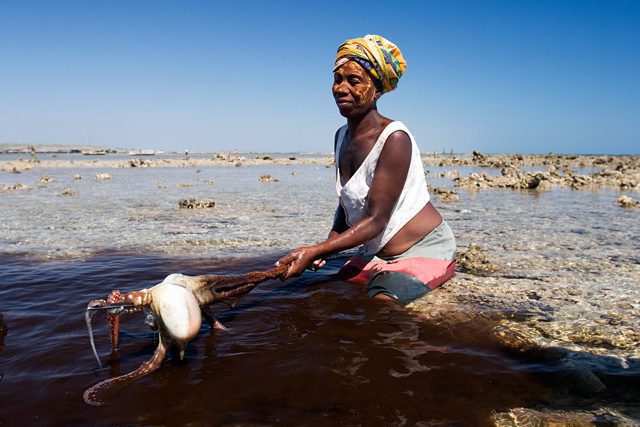
Octopus gleaning is the lifeblood of many communities in coastal Madagascar
There are currently no MSC certified octopus products available on the international market, and there is only one fully-certified fishery in Africa to date, the South African deep-sea Hake (trawl). While the MSC programme is open to fisheries of all sizes, including small-scale traditional fisheries like the Madagascar octopus fishery, there are few small-scale fisheries in the assessment process to date, for reasons such as lack of funding and institutional support. MSC certification offers increased market opportunities and sometimes even price-premiums. Small-scale fisheries are vital for the livelihoods of over 95% of the world’s fishers and it is essential that they should have equal access to sustainability management tools and access to new markets.
We believe that an eco-label would suit the Madagascar octopus fishery products well, and the Bali conference reaffirmed that for me. There already exists a strong value chain in place here, with committed seafood collection companies. MSC represents a tangible, structured tool to build sustainability and ultimately, healthy oceans, something you may have noticed we feel pretty strongly about here at Blue Ventures!
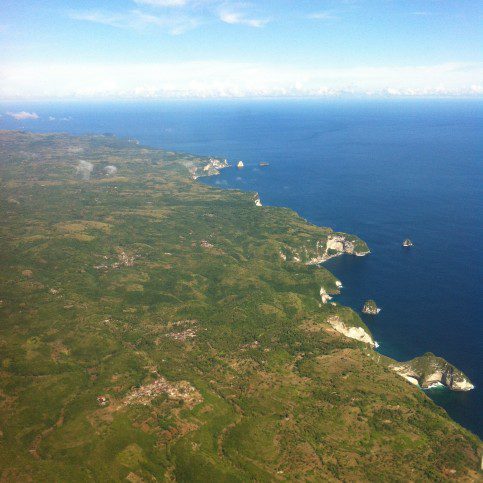
The beautiful island of Bali
Since embarking on the MSC journey in 2010, we have completed the first crucial steps, pre-assessment to identify gaps, and then planning of fishery improvement projects to address those gaps. The conference focused on the latter of the two, which was perfect for us. The next steps will be challenging, but by working as a team with our stakeholders here, and the support of the regionally-based MSC in South Africa, we believe this is something the fishery can achieve.
We are certainly embarking on new seas with this journey. No other similar fishery certification has been published to which we can compare the fishery and lessons learned, however a review of our existing data from the fishery, as well as the current management regime against MSC’s principles, shows that it is highly likely that the octopus fishery could reach full certification one day, with careful monitoring of stock health and management systems. Eco-labeled products in European super-markets may seem a long way from Velondriake, but I think that is also the beauty of this system. Linking consumers to artisanal fishers in remote locations who are deeply invested in their way of life. Forcing first-world consumers to directly consider where their food is coming from and how it is being harvested. Considering the ocean and its health. Not to mention what this means for Madagascar and the octopus fishers themselves. Strengthening the fishery is not just about the bottom line, it will strengthen lives and the future of the Vezo people who live with the sea.
Some interesting lessons from the training:
- Despite common misconceptions, a fishery does not need to be a large-scale, industrial scale operation to be in the MSC program, there are currently around 30 small scale fisheries in the program
- While the certification process is score based, a fishery does not need to gain a perfect score to reach full certification. As long as the fishery demonstrates improvement projects are in place to address any gaps
- Developing world fisheries account for 8% of the total of MSC certified fisheries and 11% of fisheries in full assessment;
- More than 40 developing world fisheries have had pre-assessment and/or are engaging in a Fishery Improvement Plan with partners.
- Fishery Improvement Projects (FIPs) can be developed and adapted to fit the individual fishery and do not necessarily need to fit a certain standard approach
- Certain areas of the world recognize the eco-label, where others are still unaware of it, so marketing is important
- While full certification can be beneficial, the process itself is equally, if not more, important. Fishery improvement projects and enhanced sustainability management of the octopus fishery will result in healthy livelihoods and a healthier ocean, with or without an eco-label.

